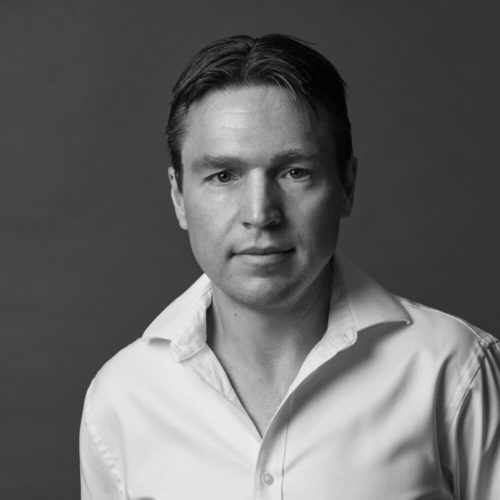
Articles
For goodness’ sake: The moral imperative behind our machine learning technology
 by David Excell
by David Excell
5 min read
Jun 8, 2022

Take me to...
This is ultimately a story about how innovation can improve the lives of many, many people at once. That might sound grandiose, but I believe we can get there. Before we start, let me address two particular elements of the story.
There’s the setting, of course, Cambridge. It’s a privilege to be able to incubate an idea in a place that brings together some of the great minds and talent from around the world, and I’m aware that many, many people will never have access to that kind of privilege.
There’s the call to adventure too, which came from one of the UK’s biggest online gaming companies, Betfair.
It’s precisely because these two elements came together that I found a higher purpose for the technology I had been researching. I realized then, in the late 2000s, that I wanted to help build technology for the good of others. That’s what I’ve spent the last 15 years doing.
Machine learning, that back then seemed completely esoteric to most people, is today a crucial part of ensuring the world’s leading financial institutions and payment processors can protect against sophisticated fraud and financial crime. Today at Featurespace we have hundreds of smart people to thank for that.
Added to this, our company stands poised to help usher in a new era of financial inclusion thanks to our team’s research into model fairness.
To understand how the story arrives at that point, we must start at the beginning.

The models learn what kind of activity is normal and what is anomalous. Their ability to make this distinction is what allows Featurespace’s customers to achieve industry-leading fraud detection while minimizing false positives.
I had always wanted to be an entrepreneur.
A creative spark cannot always be nurtured whilst working in a typical employment scenario. However, moving into the world of academia to pursue areas of interest would provide me with the space for the creative spark to take place.
This decision, and Cambridge specifically, offered the ideal atmosphere for incubating an idea that wasn’t quite ready to go to market.
When I began working on the machine learning and data science research that ultimately became Featurespace’s Adaptive Behavioral Analytics, I was in a space where I could evolve and iterate on ideas freely. I was able to introduce ideas from other fields of research such as the patterns of large crowds when they exit sporting events, or the movement of cells within specific biological processes.
The Cambridge environment provided a framework for cross-functional collaboration that exists in Featurespace today.
The same environment also provided the first opportunity to test out this new technology. Through the university’s networks of businesses and alumni, the online gaming company Betfair reached out to see whether machine learning models built to spot anomalies could help fight fraud.

Featurespace first deployed ARIC™ Risk Hub in 2008 with Betfair. The company was looking for a way to spot fraudulent transactions on its platform. Our technology proved successful in doing just that and continues to do so to this day.
Two major lessons came out of the Betfair deployment:
What we learned about in gaming has parallels in banking. If you want to prevent unwanted outcomes in either industry, you must be able to recognize uncharacteristic patterns in people’s behaviors.
Our machine learning models do this by studying user behaviors. The models learn what kind of activity is normal and what is anomalous. Their ability to make this distinction is what allows Featurespace’s customers to achieve industry-leading fraud detection while minimizing false positives.
For banks, this capability is crucial because they cannot introduce too much friction into their customer experiences. In banking, the goal is to detect and prevent fraud, but allow legitimate transactions to continue uninterrupted.
Therefore, much of what we do goes unnoticed in the everyday lives of people — and that’s a measure of success.
Case in point: During the pandemic, when the world became even more reliant on digital payments, Featurespace helped TSYS deliver even greater fraud prevention against a backdrop of rising scams and rapidly changing consumer behaviors.
I remember taking stock of that moment. More than a decade after I had founded Featurespace, our team was helping people stay safe, both from the risk to their health because they were safely transacting remotely and from the fraud that had proliferated as a result.
That felt like an important milestone to me for my personal mission.
A major focus for our researchers in recent years has been model fairness.
There is an exciting intersection today where data science meets financial inclusion. At that intersection is model bias, or all of the past prejudices that are encoded in the data that new machine learning models are trained from
Iker Perez, Principal Research Scientist at Featurespace, recently wrote about this. Financial institutions typically have lots of information about people and businesses, including where and when they spend their money.
With accurate and fair models, financial institutions can be confident that they are providing financial access to more customers, who otherwise may have been excluded – with the confidence that if fraud or financial crime takes place it can still be prevented or identified.
Removing biases from the financial system can help financial institutions be more inclusive.
And this is how a story that starts with academia and online gaming ends up at financial inclusion. I should note, too, that it’s not entirely my story to tell. It’s taken the work of hundreds of people to get Featurespace to this point.
In April, we began publishing stories written by the technologists who are working at the cutting-edge of machine learning technology. Iker’s was one of those stories. There will be many more to come.
If you’re curious to see where our story goes, you can read what our engineers and data scientists are working on here.

